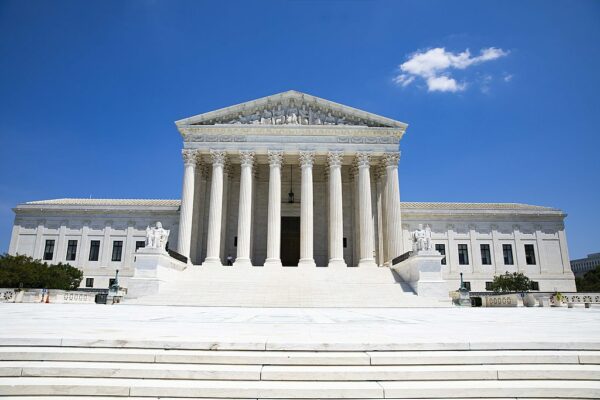The Supreme Court has curtailed the authority of regulatory agencies by a 6-3 margin in the case West Virginia v. EPA.
The media is spinning this as a loss for the fight against Climate Change, which it is.
However, the bigger impact is that this reigns in Chevron, which gave authority to regulatory agencies to interpret a statute and implement it.
The court in that case set forth a legal test on whether to grant deference or not.
Now, the court is taking power away from regulatory agencies.
The court said, in an opinion authored by Chief Justice John Roberts. that the EPA as a regulatory agency does not have the power to set standards on green house gas emissions from power plants.
Roberts wrote, “There is little reason to think Congress assigned such decisions” about the regulations in question to the EPA, despite the agency’s belief that “Congress implicitly tasked it, and it alone, with balancing the many vital considerations of national policy implicated in deciding how Americans will get their energy.”
“Capping carbon dioxide emissions at a level that will force a nationwide transition away from the use of coal to generate electricity may be a sensible ‘solution to the crisis of the day,’ ” Roberts wrote, But it is not plausible that Congress gave EPA the authority to adopt on its own such a regulatory scheme.”
He added: “A decision of such magnitude and consequence rests with Congress itself, or an agency acting pursuant to a clear delegation from that representative body.”
The power to set these standards now rests with Congress, and if it is not expressly granted to the agencies they cannot overstep their bounds and create regulations on a national level.
The Wall Street Journal reports:
The EPA powers at issue are central to Mr. Biden’s climate agenda. With fragile majorities in the Senate and House, Democrats have limited ability to advance their platform through new legislation. Like his recent predecessors, Mr. Biden is poised to govern through agencies such as the EPA, relying on his inherent constitutional authority and the statutory powers provided by existing legislation.
…
Many conservative lawyers have criticized this expansion of regulatory power, saying it isn’t consistent with the “separation of powers” framework in the Constitution. Some liberals have defended the shift toward administrative governance, which can traced back to the New Deal, saying Congress can and should delegate authority to agencies with more expertise.
Some energy businesses outside the coal industry expressed support for the EPA’s existing authority. The Edison Electric Institute, the national association of all investor-owned electric companies, wrote in a friend-of-the-court brief that stripping the agency of its authority to regulate emissions could “lead to a deluge of tort litigation” against emitters, shifting “regulation from a sensible and consistent nationwide regime governed by EPA and the states pursuant to a statutory scheme Congress designed, to a chaotic system dictated by the interests of individual plaintiffs.”
The Supreme Court has increasingly reined in federal agencies in recent years, saying agency rules relating to issues of major economic and political significance should be invalidated unless Congress made explicitly clear it ceded that power to those executive-branch entities.
In the ruling in West Virginia v. EPA the court took power away from the regulatory state. This is a massive win for small government proponents and now sends a message to Congress to do its job and not rely on agencies, who answer to no one, to restrict individuals lives.
[READ NEXT: Supreme Court Gives Religious Liberty Big Win!]


